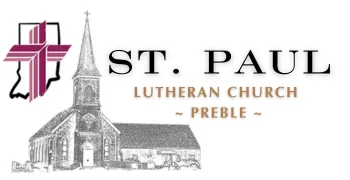
Jerusalem, City that Kills the Prophets | Luke 13:31-35

Jerusalem, City that Kills the Prophets
A Meditation on the Word of God | Luke 13:31-35
Jesus says in the Gospel that he must go to Jerusalem. He cannot go anywhere else. As he puts it in verse 33, “It cannot be that a prophet should perish away from Jerusalem.” Why must the Lord Jesus die in Jerusalem? Because Jerusalem is, as he says next verse, “the city that kills the prophets, and stones those who are sent to it.”
This is the tragedy: Jerusalem is the city where the prophets go to die. Jerusalem was the city of God. Mt. Zion was there, where God manifested his gracious presence for his people in tabernacle and temple. Jerusalem was the place where God ordained the sacrifices to teach the people two things: one, that sin is serious, and the punishment for sin is death. But second, the death for sin would not be their own—that they would not die for themselves—but God would send another to take their place and shed his blood for them, the Lamb of God who takes away the sin of the world. And so Jerusalem was the place where God taught his people to live by faith in the righteousness of another—the Savior, whom God was sending into the world.
But Jerusalem is the place of rejection. Jerusalem in both the Old and the New Testaments treated the prophets shamefully and rejected them. The Old Testament reading gives us the Prophet Jeremiah. When he called the city and its religious leaders to repentance, they laid hold of him saying, “You shall die.” And certainly, Jeremiah was not the only prophet to suffer in Jerusalem. Jerusalem was the city where John the Baptist was beheaded, where St. Stephen was stoned, where James the Son of Zebedee was the first Apostle to be martyred. Jerusalem has a long and bloody history when it comes to, as Jesus says, killing the prophets and stoning those who are sent to it. The point of the Holy Gospel is that Jesus is one of them. Our Lord stands in a long line of prophets who came before him, together with Apostles and Martyrs who would come after him, all of whom suffered for the sake of bearing witness to the truth.
In a short time, Jesus himself would stand trial before the Sanhedrin—the religious leaders in Jerusalem. They would bring false witnesses against him to accuse him of blasphemy, and send him to Pontius Pilate who would wash his hands, and send him to die just outside the city walls. Jesus was just one more rejected prophet whose words became too dangerous for the power structures of religion and politics.
But what we see in the Gospel, first and foremost, is Jesus’ gracious persistence even in the face of rejection. Our Lord is on a journey this Lent. He has set his face to the holy city. And he will not be deterred. For this is the Father’s will, that he go to the cross to die for our sins. Jesus trusts that the Father will vindicate him and raise him from the dead. Notice in the midst of Jesus’ lamenting words, what a beautiful statement of the Gospel is here! He says, “How often would I have gathered you as a hen gathers her brood under her wings.” A mother hen spreads her wings over her chicks to shield them from danger. It is just as the Psalmist says of God in Psalm 91, “He will cover you with his pinions, and under his wings you will find refuge.”
Do you see what grace is there in the words of Jesus? He deigns to spread his arms wide over the very city that rejected him. He will not let his enemies or persecutors turn him away from the cross. He graciously persists with them until he accomplishes their salvation. It reminds us that God persists with us, even when we fail to live up to the call of our Baptism, even when we so often listen to the temptations of the devil, world, and Old Adam, and turn away from the God who delivered us—God remains faithful. He will never stop being present in his Word and gifts, calling us to repentance and faith, until we reach our final perfection. God’s mercy toward us in endless. And his love is bottomless. And his Gospel invitation: “Come unto me all ye that are weary and heavy laden, and I will give thee rest,” is for everyone, the whole world.
Ultimately Jesus did spread his arms wide over the city, so that you and I and every human being may find shelter under the shadow of his wings, and forgiveness in the holy, precious blood shed, which paid for sin and won our redemption.


